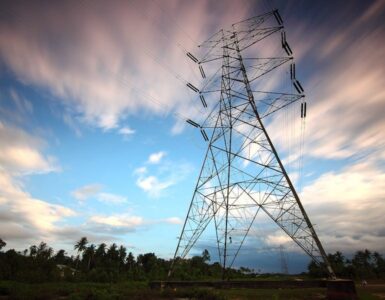If there is one word to sum up the theme of the 2019 edition of the Arizona Chamber of Commerce and Industry’s Business Agenda, it’s certainty. Certainty over the security of our water supply. Certainty for taxpayers. Certainty in funding our education system. Certainty in trade.
Our top priority for the first session of the 54th Legislature is to secure Arizona’s water future by adopting the Lower Basin Drought Contingency Plan.
The DCP is absolutely critical for Arizona. It is essential for Arizona’s existing economy, as well as our state’s future growth, that we protect Lake Mead from dropping to dangerously low levels. As my former boss, Sen. Jon Kyl would say, water is economic development.
The DCP is the best plan we have to secure our water future. Without it, we hand over our water fate to the federal government. No outcome is assured with DCP, but inaction by Arizona would have devastating consequences on Arizona’s economy.
The Arizona Chamber Foundation, our research and analysis arm, has recently produced two important policy briefs on Colorado River stewardship and the DCP. We’ve shared our findings with legislators and water stakeholders from across the state. Our message: Arizona must sign the Drought Contingency Plan.
On the taxation front, the federal Tax Cuts and Jobs Act enacted at the end of 2017 made the U.S. more globally competitive, specifically by reducing the corporate income tax and taxes for small businesses through an increased deduction on certain income. Under the bill, Arizona—already a low-tax state—wins big.
In 2019, we want to ensure that there’s no attempt in Congress to roll back those reforms, while at a state level, we want to pursue tax policy that provides certainty for Arizona tax filers, enhances our competitiveness, and is fiscally sound.
No group promoting the interests of the business community has done more in the last several years to support reform of Arizona’s education system than the Chamber. That work continues in 2019 as we seek to build upon our successful advocacy for results-based funding by securing additional funding for high-poverty, high-performing schools.
And you can bet that there will be a significant discussion of skills attainment and workforce readiness. We must be certain that we are ready to attract the jobs of tomorrow with workers who have the skills and qualifications employers need. We’ll be supporting legislation to provide additional funds to schools whose Career and Technical Education programs result in students graduating high school with credentials in in-demand fields, similar to what we did for schools whose students secure college credit before graduation.
Looking to Washington, the Chamber in 2019 will be working closely with Arizona’s congressional delegation to ensure each member votes in favor of ratification of the United States-Mexico-Canada Agreement, or USMCA, which is critical to Arizona’s trade relationship with our neighbor and number one trade partner Mexico, and with Canada, Arizona’s top source of foreign direct investment employment.
The administration in 2018 did its job to arrive at a successful conclusion to the NAFTA renegotiation process. Now it’s time for Congress to do its job and complete the ratification process.
Thanks to the outstanding work of Gov. Doug Ducey and the Arizona-Mexico Commission, which has resulted in streamlined inspection protocols under the Unified Cargo Processing model in the air, truck, and rail environments, highway safety improvements, and the nation’s best cross-border gubernatorial relationship, no state is better positioned for economic growth under the USMCA than Arizona.
We also continue to believe strongly that there are areas on immigration where both parties can agree, including reaching a positive resolution for the DACA population. In addition, we need to overhaul our visa system for a wide variety of industries, and we need to enhance border security through improved staffing levels, technology and infrastructure.
Of course, there is always more. The Chamber will continue making the argument that job creators’ regulatory burdens should not slow economic growth, and that our legal environment should encourage investment in new workers, not lawyers to fend off dubious lawsuits. We’ll also urge lawmakers to make smart investments in our transportation system that enhance Arizona’s position as a logistics hub, and take advantage of our proximity to Mexico. And we’ll work to ensure that our ballot initiative process does not expose the state to irreparable harm from out-of-state money interests.
It’s a lot, but the work to make Arizona more competitive never stops. Other states aren’t taking the year off, and we won’t either. On that, you can be certain.
















Add comment